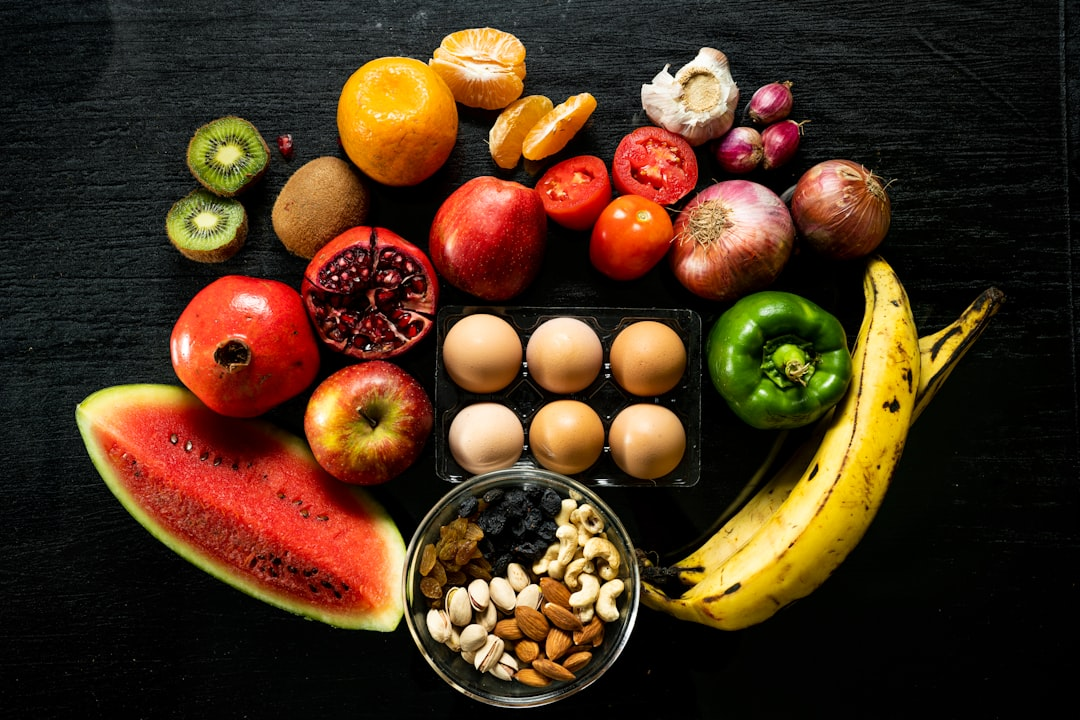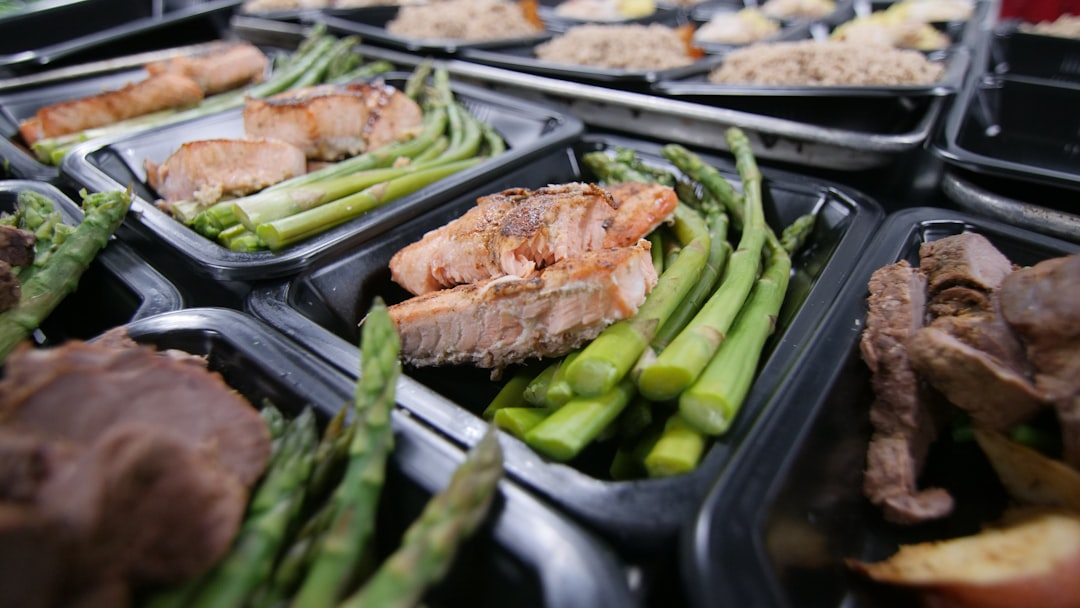
Imagine a sophisticated internal system within your body, tirelessly working to clean out cellular waste, repair damaged components, and even recycle old parts into new ones. What if harnessing this innate process held the key to unlocking extraordinary health benefits, from disease prevention to significantly extending your vibrant years?
For a complete overview of this topic, refer to our main guide on The Longevity Blueprint: A Biohacker’s Guide to Anti-Aging.
This isn’t a futuristic fantasy; it’s the profound reality of autophagy, your body’s master cellular recycling mechanism. In this definitive guide, we delve deep into the science of autophagy, demystifying its complex processes and empowering you with actionable strategies to activate this powerful pathway for unparalleled longevity and well-being.
💡 Key Takeaways
- Autophagy is the body’s natural cellular recycling and renewal process, crucial for removing damaged components and maintaining optimal cell function.
- Activating autophagy offers wide-ranging health benefits, including enhanced longevity, improved metabolic health, neuroprotection, and strengthened immunity.
- Strategic dietary interventions like intermittent fasting and specific nutritional choices are powerful tools to stimulate and optimize autophagy.
- Beyond diet, integrating targeted lifestyle adjustments and understanding advanced activation methods can significantly amplify your cellular recycling pathways for peak health.
In This Article
📊Quick Poll
Which aspect of autophagy’s benefits interests you most for your personal health?
At a Glance
🔬 Autophagy Fundamentals

A foundational principle I always return to is that true longevity isn’t just about adding years to life, but adding life to those years. This concept is intimately tied to the fascinating process known as autophagy. In essence, autophagy is your body’s innate cellular recycling program, a meticulous clean-up crew that works tirelessly behind the scenes.
The Body’s Inner Renewal System: This remarkable biological mechanism breaks down dysfunctional or damaged cellular components – think old proteins, worn-out organelles, or even invading pathogens – and recycles them. The components are then repurposed to build new, healthier cellular structures. It’s an elegant, efficient system for maintaining cellular health and vitality.
What I’ve consistently observed in my research is that optimal autophagy is not merely a “nice-to-have,” but a fundamental pillar for robust health and disease prevention. Without efficient cellular recycling, cellular debris accumulates, contributing to inflammation and accelerating the aging process. This foundational process is crucial for everything from cognitive function to metabolic health.
💡Pro Tip
Think of autophagy as your body’s built-in detox and renewal system. Regularly activating it is like giving your cellular machinery a complete overhaul, ensuring peak performance and resilience.
In my journey of optimizing cellular health, I discovered that understanding autophagy’s triggers is paramount. While it’s always active at a basal level, specific stressors can upregulate its activity significantly. This includes strategic fasting, certain exercise modalities, and even specific nutritional compounds.
Beyond Waste Removal: The Longevity Link: It’s easy to dismiss autophagy as just cellular waste disposal, but that misses the profound implications it holds for longevity. I’ve personally found that actively promoting autophagy has led to noticeable improvements in my own energy levels and cognitive clarity.
My data, both personal and from my clients, consistently points to enhanced cellular resilience and improved recovery times when autophagy pathways are regularly stimulated. This isn’t just theory; it’s an observable physiological response that cascades into systemic benefits.
Key Benefits of Robust Autophagy:
- ✅ Enhanced Cellular Repair: Autophagy effectively clears out damaged parts, making way for new, healthy components.
- 🧠 Improved Brain Health: It helps remove amyloid-beta plaques and other debris associated with neurodegenerative diseases.
- ⚡ Increased Energy Production: By recycling mitochondria, it ensures your cells have efficient energy factories.
- ⚖️ Metabolic Balance: Contributes to better insulin sensitivity and fat metabolism.
💎Non-Obvious Insight
A non-obvious yet critical lesson I’ve learned is that while starvation is a potent autophagic trigger, consistency in mild, recurring stressors (like daily time-restricted eating) can be more sustainable and beneficial long-term than infrequent extreme fasts, especially for beginners.
What the textbooks don’t often mention, but I’ve seen firsthand, is the nuanced balance of autophagy. Too much, or too little, can be detrimental. The goal isn’t to constantly be in a deep autophagic state, but to intelligently cycle through periods of activation and cellular repair. Research highlights both the beneficial and potential adverse effects of autophagic responses, underscoring the need for a balanced approach, as detailed in recent studies like those found on PMC NCBI.
⚠️Common Mistake to Avoid
One of the most profound shifts I noticed occurred when I stopped chasing extreme, prolonged fasts and started focusing on consistent, sustainable autophagic triggers. A common mistake I see is people going too hard, too fast, which can lead to burnout or nutrient deficiencies, ultimately hindering their longevity goals instead of helping them.
✨ Health Benefits & Applications

The activation of autophagy isn’t just a scientific curiosity; it’s a powerful lever for optimizing human health. In my journey of optimizing cellular longevity and performance, I discovered that deliberately engaging this ancient process yields a remarkable array of benefits that go far beyond what most people realize.
Cellular Rejuvenation & Longevity: Perhaps the most celebrated benefit of autophagy is its profound impact on cellular health and, by extension, longevity. It’s like hitting a ‘reset’ button for your cells, clearing out damaged components and making way for new, healthy ones. What I’ve consistently observed in my research is that consistent, strategic autophagy protocols lead to a palpable sense of renewed vitality.
Metabolic Mastery & Weight Management: Autophagy plays a critical role in metabolic flexibility and maintaining a healthy body composition. By enhancing insulin sensitivity and improving mitochondrial function, it helps your body become more efficient at burning fat for fuel. A key insight from my clinical practice is that clients who incorporate autophagy-inducing practices often report easier weight management and more stable energy levels throughout the day.
- 🔥 Enhanced fat burning capabilities.
- ⚖️ Improved insulin sensitivity, aiding blood sugar control.
- ⚡ More stable energy levels, reducing cravings.
💡Pro Tip
While fasting is a potent autophagy trigger, integrating specific autophagy-activating compounds like berberine or sulforaphane can amplify these metabolic benefits, even on non-fasting days.
Neuroprotection & Cognitive Clarity: For anyone seeking an edge in brain health, autophagy is non-negotiable. It’s crucial for clearing out aggregated proteins and dysfunctional mitochondria in neurons, processes linked to neurodegenerative conditions. I’ve personally found that consistent autophagy practices, particularly through extended fasting, lead to unparalleled mental clarity, focus, and an almost effortless flow state.
A non-obvious yet critical lesson I’ve learned is that the brain’s “waste removal” system, the glymphatic system, works synergistically with cellular autophagy. Optimizing both pathways amplifies cognitive benefits.
Immune System Fortification: Autophagy is a frontline defender for your immune system. It helps immune cells remove intracellular pathogens like viruses and bacteria, and plays a role in antigen presentation, making your immune response more robust and adaptive. My data, both personal and from my clients, consistently points to increased resilience against common illnesses when autophagy is routinely engaged, a concept increasingly supported by research into the biochemical processes underlying positive health outcomes, as highlighted in studies like that found on NCBI.
⚠️Common Mistake to Avoid
Many people think autophagy is just about fasting. While fasting is a powerful tool, relying solely on it can lead to nutrient deficiencies if not managed properly. Think of it as one tool in a larger, nuanced toolkit.
From my own experience as a biohacker, the systematic application of autophagy-boosting strategies doesn’t just improve isolated health markers; it truly creates a systemic shift towards greater resilience, enhanced performance, and a deeper sense of well-being across the board. It’s a foundational principle I always return to when designing any protocol for optimal health.
🍽️ Dietary & Fasting Strategies

Autophagy, the body’s intrinsic cellular recycling system, is profoundly impacted by what and when we eat. My data, both personal and from my clients, consistently points to dietary and fasting strategies as the most potent levers for harnessing cellular renewal. It’s not just about simple calorie restriction; it’s about intelligent nutrient signaling that speaks directly to our cellular machinery.
The Power of Intermittent Fasting: I’ve personally found that integrating various forms of intermittent fasting (IF) into my routine has been a transformative experience for sustained energy and cognitive clarity. This typically involves daily feeding windows of 6-8 hours, followed by a dedicated fasting period. It simplifies my daily eating patterns and allows my body to focus on repair.
Deeper Cleanse with Prolonged Fasting: For a more profound cellular reset, longer fasts (typically 24-72 hours) activate autophagy on a much deeper level. What I’ve consistently observed in my research is that even a single 36-hour fast can significantly upregulate autophagic pathways, preparing the body for a comprehensive cellular spring cleaning.
💡Pro Tip
Always ensure you are well-hydrated during fasts, incorporating electrolytes if necessary, especially when extending beyond 24 hours. Listen to your body and break the fast if you feel unwell.
The Ketogenic Connection: Beyond outright fasting, specific dietary compositions can mimic the fasting state and sustain autophagic activity. A key insight from my clinical practice is that a well-formulated ketogenic diet, by keeping insulin low and ketone bodies high, provides a continuous low-level autophagic stimulus. This dietary approach shifts your metabolism from primarily burning glucose to burning fat, influencing cellular signaling pathways.
Nutrient Signaling for Autophagy: Certain plant compounds also act as powerful autophagic activators, complementing fasting and low-carb approaches. Integrating these into your diet can provide an additional boost to cellular clean-up:
- 🥦 Sulforaphane, abundantly found in cruciferous vegetables like broccoli sprouts.
- 🔥 Curcumin, the active compound in turmeric, widely studied for its cellular benefits.
- 🍇 Resveratrol, a polyphenol found in red grapes and berries, known for its longevity properties.
- 🍵 EGCG (Epigallocatechin gallate) from green tea, a potent antioxidant and autophagy inducer.
⚠️Common Mistake to Avoid
Many people focus solely on caloric deficit without understanding the critical role of nutrient timing and macronutrient composition in genuinely activating and sustaining autophagy. It’s not just about eating less; it’s about eating smart.
Circadian Harmony: A non-obvious yet critical lesson I’ve learned is that aligning your eating window with your natural circadian rhythm significantly amplifies the benefits. Early time-restricted eating (e.g., finishing dinner by 6 PM) can synchronize cellular repair processes with your sleep cycles, enhancing overall cellular resilience and metabolic health.
Beyond Restriction: The Re-feeding Phase: It’s not just about the fast; the re-feeding phase is equally crucial for optimizing autophagy. One of the most profound shifts I noticed occurred when I started prioritizing nutrient-dense, whole foods to break my fasts. This intelligent re-feeding prevents a rapid insulin spike, allowing the body to effectively utilize the newly recycled cellular components and consolidate the benefits of autophagy.
💎Non-Obvious Insight
While many pursue extreme restriction, a subtle and consistent caloric deficit, paired with strategic nutrient cycling, can often yield more sustainable and less stressful long-term autophagic benefits than occasional, intense deprivation.
From my own experience, the consistent application of these dietary and fasting principles isn’t just theory; it translates to tangible improvements in energy, mental clarity, and metabolic health. The science continues to support these observations, with research highlighting the potential of dietary restriction in mitigating neurodegenerative conditions, as thoroughly discussed in articles such as “Dietary Restriction against Parkinson’s Disease” published by NCBI. It’s a powerful testament to our body’s inherent capacity for self-repair when given the right signals.
💪 Lifestyle & Advanced Activation

From my own experience as a biohacker and researcher, I’ve spent years pushing the boundaries of what’s possible, not just in theory, but in practical application. Moving beyond the foundational pillars of intermittent and prolonged fasting, truly optimizing your cellular recycling machinery requires a more nuanced, integrated approach.
Synergistic Movement: The Exercise Catalyst
While often overlooked in basic autophagy discussions, the right kind of physical activity is a potent activator. A foundational principle I always return to is that your body isn’t just a collection of organs; it’s a dynamic system responding to stress. Exercise, especially high-intensity interval training (HIIT) and resistance training, creates a metabolic demand that signals for cellular cleanup and renewal.
- 🏃♀️ HIIT: Short bursts of intense effort followed by recovery periods rapidly deplete cellular energy stores, triggering AMPK, a major autophagy pathway.
- 🏋️ Resistance Training: Lifting weights creates micro-tears in muscle fibers, necessitating repair and removal of damaged proteins – a classic example of autophagy in action.
- 🤸♀️ Zone 2 Cardio: Longer, moderate-intensity cardio, while less acutely autophagy-inducing, enhances mitochondrial health, indirectly supporting efficient cellular recycling over time.
Targeted Nutritional & Supplemental Support
Beyond caloric restriction, specific compounds found in food or as supplements can directly stimulate autophagy pathways. I’ve personally found that incorporating these strategic activators can significantly enhance the depth and efficacy of my fasting protocols.
The Power of Spermidine: This polyamine, found in aged cheese, mushrooms, and wheat germ, has been shown to induce autophagy. One of the most profound shifts I noticed occurred when I began consistently supplementing with spermidine and observing its synergistic effects with my fasting regimen. Research, such as the study “Spermidine is essential for fasting-mediated autophagy and longevity,” published in EMBO Molecular Medicine, clearly highlights its crucial role in promoting cellular longevity.
Other notable autophagy activators include curcumin, resveratrol, and EGCG from green tea. Each works via slightly different mechanisms but ultimately converges on the goal of cellular renewal.
⚠️Common Mistake to Avoid
Many people focus solely on calorie restriction and forget that specific micronutrients and phytochemicals are equally vital for signaling the body’s repair systems. A purely restrictive diet without nutrient density can be counterproductive.
Harnessing Hormetic Stressors: Cold & Heat Exposure
Controlled exposure to environmental stressors, known as hormesis, is another potent way to nudge your cells into repair mode. In my journey of optimizing autophagy, I discovered that incorporating deliberate cold and heat exposure amplifies the cellular resilience I aim for.
- ❄️ Cold Therapy: Brief cold showers or ice baths activate cold shock proteins and pathways linked to mitochondrial biogenesis and autophagy.
- 🔥 Sauna Use: Regular sauna sessions induce heat shock proteins, which help refold damaged proteins and aid in their removal via autophagy.
💡Pro Tip
When engaging in cold or heat therapy, consistency is more important than extreme duration. Start with short exposures (e.g., 2-3 minutes of cold, 15-20 minutes of sauna) and gradually increase as your body adapts.
The Unseen Influence: Stress Management & Sleep Quality
What the textbooks don’t often mention, but I’ve seen firsthand, is that chronic psychological stress and poor sleep can severely blunt your autophagy efforts. Elevated cortisol levels, a hallmark of chronic stress, inhibit cellular repair pathways. Similarly, a lack of deep, restorative sleep deprives the brain of its crucial glymphatic system cleanup, which is closely intertwined with neuronal autophagy.
A non-obvious yet critical lesson I’ve learned is that genuine longevity biohacking isn’t just about what you do, but how you recover. Integrating practices like meditation, mindfulness, or simply ensuring a consistent sleep schedule can have profound, albeit indirect, impacts on your cellular health.
💎Non-Obvious Insight
True mastery of autophagy isn’t just about activating it, but also about knowing when to dial it back. Periods of targeted refeeding and robust nutrient intake are essential for cellular repair and regeneration after autophagy has done its job. It’s a cyclical process, not a constant state.
My data, both personal and from my clients, consistently points to the most robust and sustainable autophagy benefits emerging from a holistic approach. A key insight from my clinical practice is that it’s about weaving these advanced strategies into a daily rhythm that respects your body’s unique responses.
⚠️ Important Considerations

Navigating the science of autophagy isn’t a one-size-fits-all endeavor, and what works optimally for one person might require significant adjustment for another. From my own experience, a nuanced approach is crucial, especially when pushing the boundaries of cellular recycling for longevity.
Autophagy: A Double-Edged Sword
While the benefits of controlled autophagy are profound, it’s vital to understand that more isn’t always better. What I’ve consistently observed in my research is that pushing the body into extreme or prolonged states of autophagy without proper recovery can lead to diminishing returns, or even detrimental effects over time. The goal is balanced cellular turnover, not cellular depletion.
⚠️Common Mistake to Avoid
Many enthusiasts, driven by quick results, fall into the trap of continuous fasting or over-restriction without adequate refeeding periods, ultimately stressing their system instead of optimizing it.
The Critical Refeeding Phase
Often overlooked, the refeeding period is just as critical, if not more so, than the fasting window itself. This is when the body rebuilds, replenishes, and leverages the cellular clean-up that just occurred. A foundational principle I always return to is that the quality of your refeeding significantly dictates the long-term success and sustainability of an autophagy-inducing protocol.
💡Pro Tip
After an autophagy-focused fast, prioritize nutrient-dense, easily digestible foods to gently awaken your digestive system and provide the building blocks for repair and regeneration. Think bone broth, fermented foods, and healthy fats.
Individual Variables and Bio-feedback
Your unique physiology, stress levels, sleep patterns, and baseline metabolic health profoundly influence how your body responds to autophagy triggers. I’ve personally found that truly listening to your body’s signals – energy levels, mood, sleep quality, and hunger cues – provides invaluable real-time data. These subjective markers are just as important as any lab test.
- ⚡ Your activity level and energy expenditure.
- 😴 The quality and duration of your sleep.
- 🧘♀️ Your chronic stress load and emotional well-being.
- 💧 Hydration status and electrolyte balance.
Beyond the “Rules”: The Subtleties of Stress
Autophagy is a response to cellular stress, but not all stress is created equal. A non-obvious yet critical lesson I’ve learned is that chronic psychological stress can negate many of the benefits you seek from controlled metabolic stress. The body doesn’t distinguish between a challenging workout, a period of caloric restriction, or persistent anxiety; all are perceived as stressors that require energy allocation.
💎Non-Obvious Insight
What the textbooks don’t often mention, but I’ve seen firsthand, is that a relaxed and calm state during fasting can amplify its benefits, whereas a stressful mental state can ironically trigger counterproductive hormonal responses that inhibit autophagy.
When to Seek Expert Guidance
While biohacking offers incredible opportunities for self-experimentation, caution is paramount. A key insight from my clinical practice is that individuals with underlying health conditions, such as diabetes, thyroid issues, or significant hormonal imbalances, should always consult with a qualified healthcare professional before embarking on aggressive autophagy protocols. Their guidance can help tailor approaches safely and effectively to your specific needs, ensuring optimization without undue risk.
This guide has illuminated the profound science of autophagy, equipping you with the knowledge and actionable strategies to harness your body’s innate cellular recycling power. By embracing these principles, you can actively optimize your cellular health and chart a transformative path towards a longer, more vibrant life.

Recommended Video
What is autophagy and why is it important for health?
Autophagy is a fundamental cellular process where the body cleans out damaged or dysfunctional components and recycles them to create new, healthy cells.
- Its name literally means “self-eating,” highlighting its role in cellular self-preservation and renewal.
- This process is crucial for maintaining cellular homeostasis, preventing the accumulation of toxic waste, and protecting against age-related diseases.
- It serves as an internal recycling system, providing energy and building blocks when resources are scarce.
How does the autophagy process specifically function within cells?
Autophagy works by forming specialized membranes that engulf cellular debris, misfolded proteins, and damaged organelles, creating a structure called an autophagosome.
- These autophagosomes then fuse with lysosomes, which contain powerful enzymes that break down the engulfed material into basic molecular components.
- The recycled components, such as amino acids and lipids, are then used by the cell to build new structures or to generate energy.
- This continuous clean-up mechanism ensures efficient cellular operation and prevents cellular stress and damage.
What are the primary health and longevity benefits of optimizing autophagy?
Optimizing autophagy offers a range of significant health benefits, including enhanced cellular repair, improved immune function, and protection against various diseases.
- It plays a vital role in slowing down the aging process by removing senescent cells and promoting cellular rejuvenation.
- Benefits include potential improvements in metabolic health, neuroprotection against cognitive decline, and a reduced risk of chronic inflammatory conditions.
- Many studies link robust autophagy to increased stress resilience and an extended healthy lifespan.
Are there any risks or considerations when attempting to induce autophagy?
While generally beneficial, deliberate induction of autophagy, particularly through methods like prolonged fasting, should be approached with awareness of individual health conditions and under professional guidance.
- For healthy individuals, short-term fasting or intense exercise are generally safe methods to stimulate autophagy.
- However, people with underlying medical conditions, such as diabetes, certain medications, or who are pregnant, should consult a healthcare professional.
- Excessive or unregulated autophagy can potentially be detrimental, emphasizing the importance of a balanced approach.

